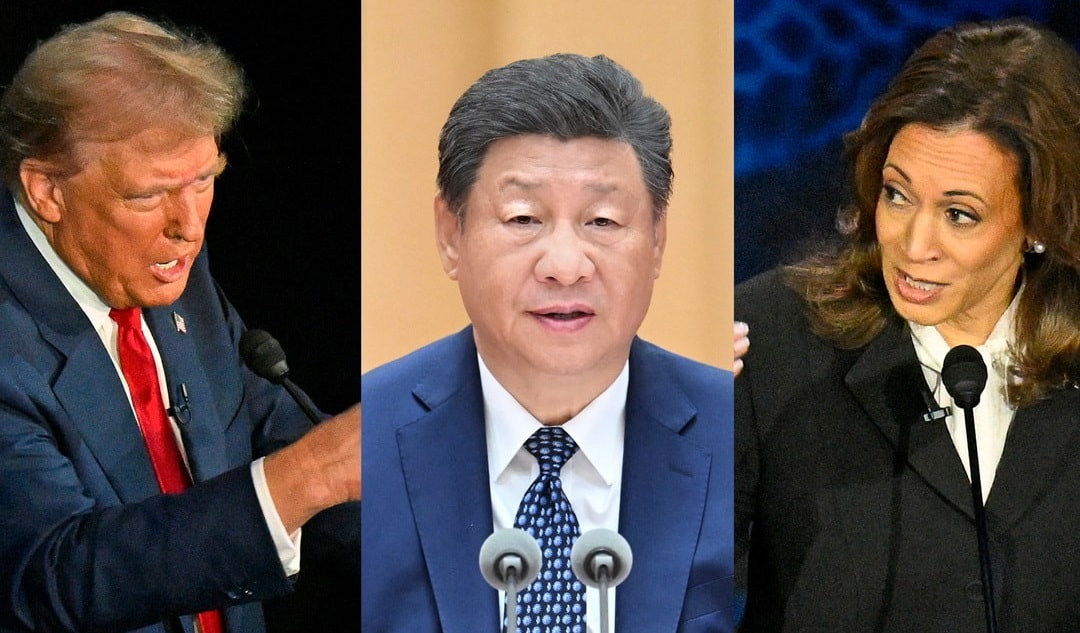China’s Subnational Influence in the U.S.: An Ongoing Challenge
As the United States ramps up its defenses against potential threats from the Chinese Communist Party (CCP), Beijing has adopted a strategic approach that leverages an essential American principle: the separation of state and federal powers. This tactic allows China to exert influence across various sectors of U.S. society, raising concerns about national security.
Growing Concerns Over Chinese Influence
In recent years, the U.S. federal government has introduced several measures aimed at curbing potential threats from Beijing. Among the actions taken includes restrictions on Chinese investments in U.S. farmland, primarily due to fears that such properties could be utilized for espionage activities. Despite these efforts, experts believe that Washington has yet to address China’s most formidable tool: influence itself.
A new report titled “The Near Enemy: China’s Subnational Reach Into the United States“, unveiled by the Foundation for Defense of Democracies (FDD), sheds light on how Beijing is effectively navigating around federal restrictions. The report emphasizes that Beijing is cultivating strategic relationships at both the state and local levels, allowing it to weave a web of influence that is harder to detect and counter.
Beijing’s Localized Approach
The findings from the FDD report are alarming; it states, “China’s subnational influence in the United States today far exceeds that of any other external power.” This approach, which outclasses even the Soviet Union’s Cold War-era influence tactics, is centered around building connections with state and local governments.
Rather than engaging in direct federal interactions, the Chinese government has prioritized developing collaborations with state officials through private deals, localized investment initiatives, and economic partnership programs. These strategies often align with the states’ priorities, such as boosting local economies and job creation, rendering them more attractive to state leaders, even amidst national security concerns.
“State and local governments are more pragmatic than their federal counterparts,” the report suggests. It further notes that the priority for local leaders often tilts toward economic expansion rather than security considerations. Historical evidence supports this claim, as a 2019 article from China’s state-run Xinhua news agency indicated that U.S. local governments were still seeking cooperation with Chinese entities, even during the contentious U.S.-China trade war under the Trump administration. The latest insights from the FDD report suggest that this perspective remains constant among state leaders from all political affiliations.
The Weak Spot in the U.S. Federal Structure
The report pointedly highlights a structural imbalance within the U.S. federal system. While national authorities oversee security and international trade policies, state and local leaders prioritize the provision of public goods and promote economic growth. This dichotomy provides a pathway for China’s subnational influence campaigns—predicated on economic collaboration and investment—that effectively elude federal security measures.
California Governor Gavin Newsom’s 2022 visit to China, where he met with Chinese President Xi Jinping, exemplifies this relationship-building. They discussed vital matters such as economic development and cultural exchange programs. Similarly, Arkansas Governor Asa Hutchinson, during a National Governors Association event in 2018 amid escalating trade tensions, emphasized the importance of fostering state-level relationships with China. “The more we can build relationships at the state level, the more successful we will be at the national level,” Hutchinson proclaimed.
Despite these interactions being seemingly benign, the FDD report warns this focus on state partnerships represents a significant vulnerability. By emphasizing economic benefits, the CCP can maneuver around federal barriers, nurturing influence in crucial areas, including trade, technology, education, media, and research—often without any substantial scrutiny.
Need for Coordination and Comprehensive Strategy
Critically, the report’s authors highlight a disjointed U.S. response to China’s subnational influence efforts. “American policy responses to China lack coordination,” they remark, urging the need for a cohesive and integrated strategy to counteract the CCP’s multifaceted approach to expanding its influence through state, local, and commercial channels.
Nathan Picarsic, a senior fellow at FDD and one of the report’s co-authors, stresses that the CCP purposefully seeks out state and local entities as “valuable and ripe for exploitation.” Through these connections, Beijing secures not only investment deals and cultural interactions but also shapes public narratives to its advantage.
“The CCP takes a calculated approach to exploit gaps in U.S. defenses, working to establish a ‘united front’ to extend its influence beyond China’s borders,” Picarsic explained during a recent interview with Fox News Digital. He further asserted, “For the United States to effectively address the threat posed by the CCP’s global strategy—across capital, technology, or military front—we must first confront its presence within our own borders.”
Confronting a Growing Threat
As the FDD report underscores, there is a dire need for a consolidated response to counter the CCP’s overarching strategy to influence American policies and public opinion at various government levels. While the federal government tightens its policies regarding trade and national security, the ongoing state-level engagement with Beijing presents inherent risks that must not be overlooked by policymakers nationwide.
In light of these findings, the complexities surrounding U.S.-China relations continue to deepen, demanding serious reflection and action from those in power. Fox News Digital has reached out to Governor Gavin Newsom and former Governor Asa Hutchinson for their commentary on the substantial revelations highlighted in the FDD report.
As the U.S. navigates its intricate and evolving relationship with China, understanding the nuances of these state and local engagements is paramount for safeguarding national interests.
